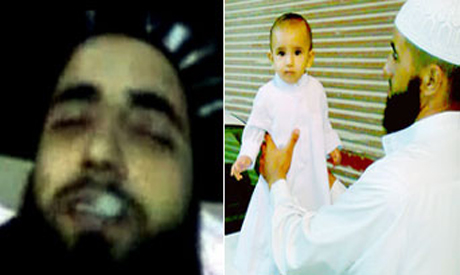By Jailan Zayan/AFP
CAIRO: Pro-democracy activists have pitched their tents once again in Cairo’s Tahrir Square on Thursday to push for political reforms and to demand that officials found guilty of abuse be brought to justice.
After violent clashes in central Cairo that left over 1,000 people injured, a few dozen activists spent a calm night in the square which was the epicenter of protests that toppled president Hosni Mubarak in February.
“We will stay in the square until guilty police officers are tried,” Mossaad Shahrour told AFP.
“We want real, open trials of corrupt police and officials, including Mubarak,” said Mohamed Abdel-Qawi.
Activists are also calling for the trial of former interior minister Habib Al-Adly, who is being investigated for ordering the killing of protesters during the January 25 uprising.
Al-Adly has been sentenced to 12 years on corruption charges.
Clashes had erupted in Cairo on Tuesday evening between protesters and anti-riot police, amid conflicting reports of what exactly sparked the trouble.
The interior ministry blamed families of the victims killed in the uprising, saying that some of them stormed a theater where a memorial service was being held for those who died, which led to clashes with security.
Some activists said police beat the families who had been barred from joining the service, and accused loyalists of the ousted leader of stirring up trouble and instigating clashes.
After the theatre incident, protesters headed to the interior ministry then Tahrir Square and were fired at with heavy tear gas. Some broke pavement blocks to throw stones at the police.
Violent clashes also erupted around Tahrir and outside the nearby interior ministry building on Wednesday, where the army had to step in in the afternoon to restore calm.
The clashes signaled the mounting frustration with the military rulers over the pace of reform, with activists calling for an open-ended sit-in in Tahrir until the goals of the revolution are met.
Among the key demands are the trial of officials and police officers in abuse cases before and after the January 25 revolt, an end to military trials of civilians, an inclusive political process and freedom of expression and media.
The Supreme Council of the Armed Forces, which took power when Mubarak was ousted in February, has vowed to bring to justice those found guilty of abuse and has ordered the trial of several old regime figures, including Mubarak.
The former leader is currently in custody in a hospital in Sharm El-Sheikh and is to face trial, along with his two sons Alaa and Gamal, on Aug. 3 on charges of killing protesters and fraud.
But many activists have criticized the fast pace of the trials, demanding a credible and thorough process for the sake of justice, not revenge.

Egyptian protesters pray at Tahrir Square in Cairo on June 29 after bloody clashes between protesters and anti-riot police that raged overnight. (AFP Photo/Khaled Desouki)

